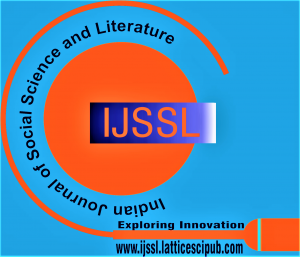![]()
Bangabandhu’s Historical Speech in the United Nations General Assembly: A Comparative Analysis
Istiaque Hossain Molla
KIstiaque Hossain Molla, Senior Lecturer, School of General Education, BRAC University, Dhaka, Bangladesh.
Manuscript received on 25 June 2024 | Revised Manuscript received on 03 November 2024 | Manuscript Accepted on 15 December 2024 | Manuscript published on 30 December 2024 | PP: 37-43 | Volume-4 Issue-2, December 2024 | Retrieval Number: 100.1/ijssl.C1051032323 | DOI: 10.54105/ijssl.C1051.04021224
Open Access | Ethics and Policies | Cite | Zenodo | OJS | Indexing and Abstracting
© The Authors. Published by Lattice Science Publication (LSP). This is an open-access article under the CC-BY-NC-ND license (http://creativecommons.org/licenses/by-nc-nd/4.0/)
Abstract: It has been almost 50 years since Bangladesh achieved its independence from Pakistani domination. The contribution and charismatic leadership of Bangabandhu Sheikh Mujibur Rahman who declared the independence of Bangladesh is beyond explanation. Bangabandhu delivered several historical speeches in his moral life. But one of the greatest and strongest speeches he delivered at the 29th United Nations (UN) General Assembly was a guideline for Bangladesh and the whole world, which completed him as a ‘global leader’. Bangabandhu emphasized ‘Peace and Justice’ as he believed that only this can bring back discipline. The democratically elected Bangladesh Awami League (AL) government and the Prime Minister, H.E. Sheikh Hasina who is already recognized as a global leader are trying to implement all the directions that Bangabandhu mentioned in his speech regarding economic emancipation, peace and justice, social development, peaceful use of technology, good relationship with neighbors, upholding brotherhood and solidarity. These will help to build a peaceful world and Bangabandhu’s ‘Shonar Bangla’ or ‘Golden Bengal’. As a historical event, this paper is based on qualitative approaches including content analysis, literature review, and interviews with academic scholars. The expected findings of the paper are to present the leadership quality of Bangabandhu and Prime Minister Sheikh Hasina through their speech at the UN, how they became global leaders, and the fair implications of Bangabandhu’s policies by Prime Minister Sheikh Hasina.
Keywords: Bangabandhu, Global Leader, UN, Policy, Awami League.
Scope of the Article: Political
